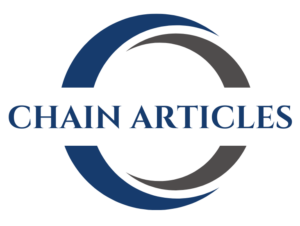What started as a pandemic deep dive into Bitcoin during university has evolved into one of Canada’s most promising Bitcoin education initiatives.
Zac Guignard, now a financial freedom writer at the Human Rights Foundation and director of communications of Learning Bitcoin, represents a new generation of Bitcoiners who discovered the technology during the 2020 lockdowns and never looked back.
Halfway through his economics degree at the University of Victoria, Guignard encountered Bitcoin at the perfect storm of timing and curiosity.
“We’re all cooped up inside during that time and it felt like a really good time to dive into this thing that I didn’t quite understand,” he recalls. Unlike many who dismiss Bitcoin initially, his foundation in economics gave him the framework to recognize something more profound.
“I was looking around the world, and I was seeing all sorts of economic problems going on. Inflation, wealth inequality, and government debt are all rising. And to top it off, my generation has been priced out of owning a home,” Guignard explains.
This was a big inspiration behind starting Learning Bitcoin: to provide anyone access to the tools and knowledge needed to navigate a broken financial system.
It also inspired Guignard to become president of the University of Victoria’s Bitcoin club, running practical workshops teaching students how to set up Bitcoin wallets and use the Lightning Network.
“The younger generations definitely have a pretty open mind towards digital cash,” he observed. “You don’t necessarily get as much of the preconceived notions or misconceptions about Bitcoin.”
His point about digital natives resonates: “I lived through the digitization of everything. So to me and to my generation more broadly, digital cash, digital money is not a big step at all.”
Vancouver: Canada’s Bitcoin Capital
This year, Learning Bitcoin is making a strategic move from Victoria to Vancouver, a city Guignard boldly claims is “the Bitcoin capital of North America right now.”
There are some numbers that back up his claim, like over 100 merchants accepting bitcoin, regular BitDevs meetups, a growing Bitcoin community, and even a Bitcoin-friendly mayor.
“Vancouver is emerging as such a large, cohesive, and communal grassroots Bitcoin scene,” Guignard explains. Ken Sim, Vancouver’s mayor, will speak at this year’s conference, having previously called Bitcoin “one of the most important inventions ever.”
Learning Bitcoin 2025: The Speaker Lineup
The speaker lineup mixes practical education with powerful advocacy. BTC Sessions (Ben Perrin), known for creating some of the most trusted Bitcoin tutorials online, leads the education charge.
“I’m really excited that Ben is going to be joining us this year,” said Guignard. “We also work with him at HRF, where he co-leads our financial freedom webinars. He is one of the best educators in the space.”
Francis Pouliot from Bull Bitcoin will also be there discussing their expansion across North America.
“Francis is coming from Bull Bitcoin. He’ll be sharing what they’re building as one of the most principled Bitcoin-only companies. They’ve expanded into Mexico. They’re doing some amazing stuff across North America,” Guignard explains.
Vancouver’s Bitcoin-friendly mayor Ken Sim is another big speaker and presents a unique opportunity for politicians to see how big of an impact Bitcoin can have on local communities.
“I’d love to see him get a little more bullish,” Guignard admits, noting that Sim has had to remain professionally composed but has called Bitcoin “one of the most important inventions ever.”
Guignard hopes the conference will give the mayor space to “really lean into the Bitcoin crowd.”
Scott Dedels, author of “The Dao of Bitcoin,” and Seb Bunney, who wrote “The Hidden Cost of Money,” round out the lineup.
“Seb does a wonderful job of breaking down the monetary system, and what it means to live in a debt-based system,” Guignard notes. “Both of them (Dedels & Bunney) are incredibly well spoken, especially for audiences that haven’t come to fully understand Bitcoin yet.”

Beyond Politics: Bitcoin as Universal Tool
One of the most compelling aspects of Guignard’s perspective is how Bitcoin transcended his political views.
“Discovering Bitcoin made me far less political. Not because I care less, but because I realized the issues we face run deeper than any one party or election. These are structural problems baked into the systems we rely on, and they cannot be solved from within those very same systems.”
This shapes Learning Bitcoin’s approach. “It doesn’t matter where you are in Canada or if you’re in the States or you support Trump or you voted for Kamala, Learning Bitcoin is a place for everybody.”
The Conference That Bridges Theory and Practice
Learning Bitcoin’s format addresses a common problem: the gap between theoretical understanding and practical use.
“A lot of Bitcoin education is very much focused on the theoretical or the future,” Guignard notes. “That can often sound crazy to someone who has literally never even sent a Bitcoin transaction.”
To address this, the conference’s first day focuses on hands-on workshops, from basic wallet setup to proof-of-work experiments and monetary history.
The second day dives into Bitcoin’s broader implications. The aha moments are real: “People sending a Bitcoin transaction for the first time, it’s like ‘holy moly I just sent economic value from my phone peer-to-peer, instantaneously, and for a few cents.’”
Expanding the Freedom Tech Ecosystem
This year’s conference includes freedom technologies outside of Bitcoin as well, like Nostr, the decentralized social media protocol. Will Casarin from Damus will speak about how Bitcoin and Nostr complement each other as freedom technologies.
And the Human Rights Foundation (HRF), a nonprofit supporting global human rights and democracy, is sponsoring Learning Bitcoin’s speaker dinner.
HRF itself has a dedicated Financial Freedom program that focuses on leveraging Bitcoin as a tool for human rights and individual liberty under authoritarian regimes.
Guignard’s enthusiasm for Nostr is infectious: “I post on Twitter and I can get more likes, but honestly, throwing something on Nostr and getting only 30 likes, but 3,000 satoshis in zaps (bitcoin tips on nostr) feels so much better than a viral Twitter post.”
Hard to argue. Try walking into a coffee shop and offering them 5,000 likes. You’ll get laughed out the door. Flash 5,000 sats? That’s real money, and if the café takes bitcoin or you cash it out, that’s a cappuccino in your hand with no middleman skimming off the foam.
The Mission Continues
“The mission of Learning Bitcoin is to orange pill the next wave of Bitcoiners,” Guignard states simply.
For a generation that witnessed unprecedented monetary policy firsthand, the conference offers Bitcoin education that meets people where they are while showing them where Bitcoin can take them.
As someone who went from university Bitcoin club president to conference host and Human Rights Foundation writer in just a few years, Zac Guignard embodies organic Bitcoin adoption. His journey proves that sometimes the best way to learn Bitcoin is to start teaching it to others.
Dive deeper into Learning Bitcoin at www.learningbitcoin.ca





